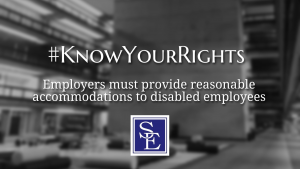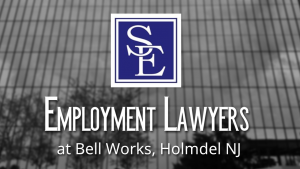Most people are aware that the state and federal law can provide legal protection against sexual harassment and other discriminatory conduct to employees in the workplace. No job-related action, from recruitment and interviewing to compensation or discharge can be intentionally influenced or biased by an employee’s protected class, such as sex, gender, race, disability and others protected classes. But what if the individual is discriminated or harassed outside the employment? Will the law provide any protection to an individual who is subjected to sexual harassment or other forms of discrimination in places outside the employment, such as government building, campaign organizations or within a police department? The Appellate Division has issued a decision providing further guidance in situations in which a person is subjected to non-employment related discrimination in a case entitled Holmes v. Jersey City Police Department.
 The case involves a transgender man, who was arrested for shoplifting and brought to the Jersey City Police Department for processing. The individual, Mr. Holmes, presented his valid driver’s license indicating his gender as male at the time of the arrest. After fingerprinting revealed Holmes’ former name and gender, the officers used offensive and demeaning language to verbally harass Mr. Holmes for the duration of his time at the police station. The officers also moved Mr. Holmes from a male holding cell to a female holding cell despite Mr. Holmes’ identification as male.
The case involves a transgender man, who was arrested for shoplifting and brought to the Jersey City Police Department for processing. The individual, Mr. Holmes, presented his valid driver’s license indicating his gender as male at the time of the arrest. After fingerprinting revealed Holmes’ former name and gender, the officers used offensive and demeaning language to verbally harass Mr. Holmes for the duration of his time at the police station. The officers also moved Mr. Holmes from a male holding cell to a female holding cell despite Mr. Holmes’ identification as male.
The New Jersey Law Against Discrimination prohibits gender-based discrimination and sexual harassment in a place of public accommodation. A place of public accommodation is any place that is open to the public, including schools, businesses, restaurants, government buildings and healthcare facilities. Public place accommodation violations include the use of offensive language, the display of demeaning images such as pornography or inappropriate drawings, as well as unwanted touching and other forms of physical harassment. This harassment can be unlawful regardless of whether it’s performed by an employee of the public place or another patron. Places of public accommodation have legal obligations to ensure that they have policies and procedures in place to prevent and stops the harassment once it knows about it or should have known about it, and it may not retaliate against the individual who was harassed or complained about harassment.
 New Jersey Employment Lawyers Blog
New Jersey Employment Lawyers Blog


